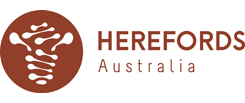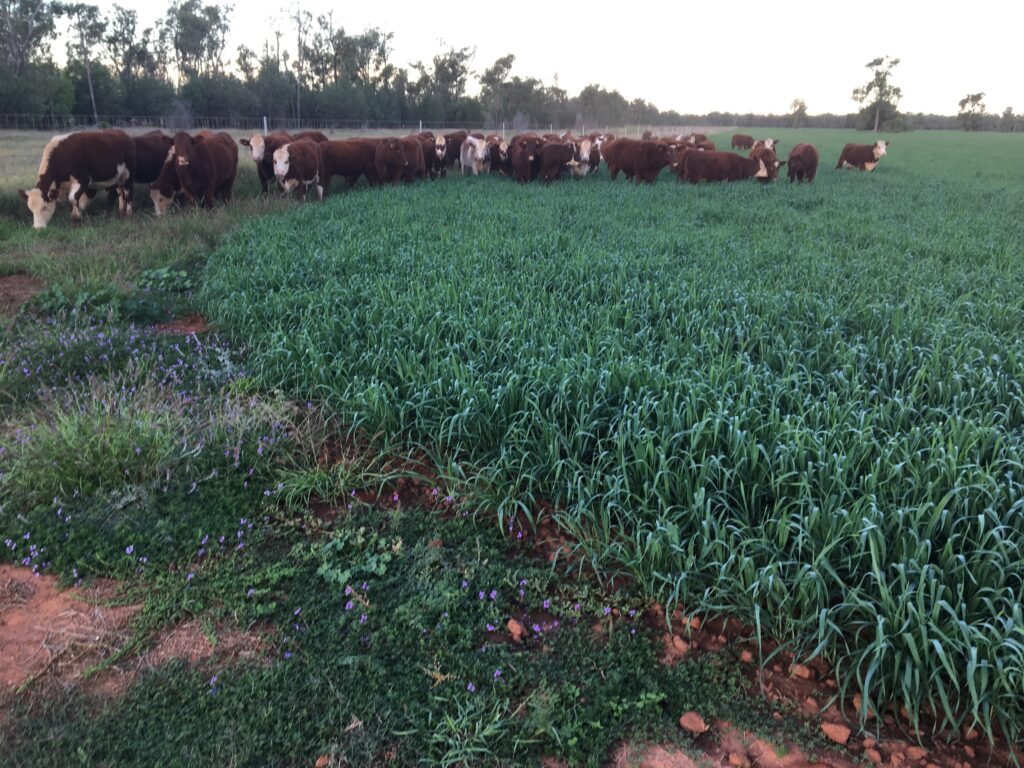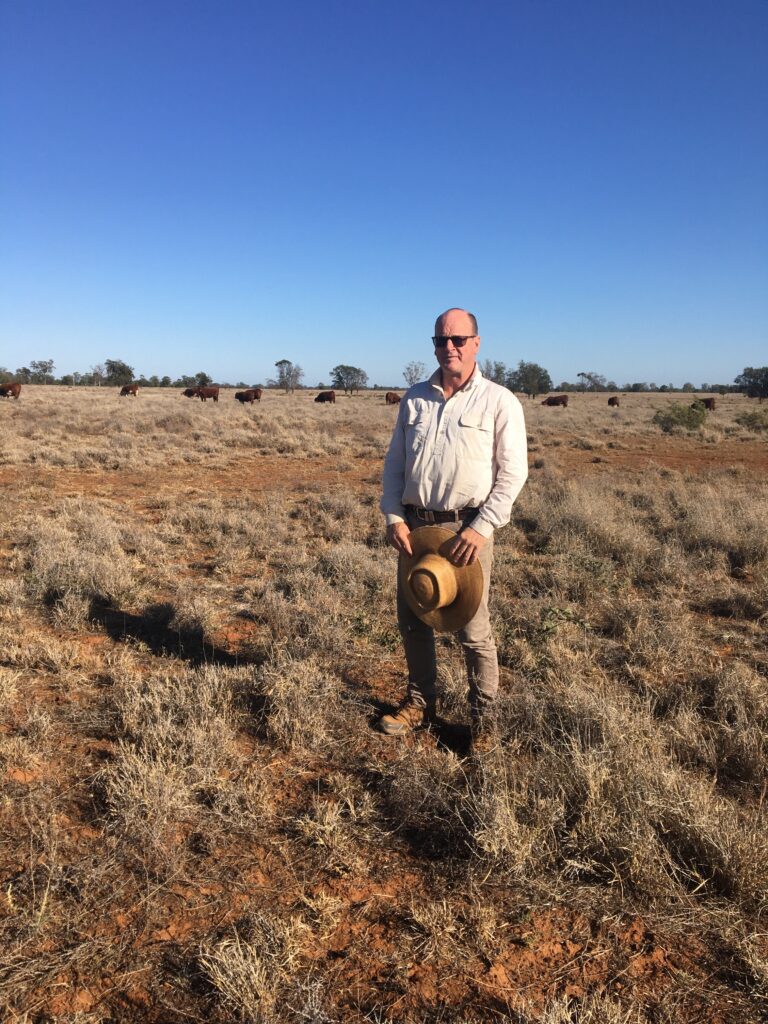Hereford influenced cattle have proven their superior finishing ability, eating quality and compliance rates for southwest Queensland grass fed beef producer Cameron Smith.
Trading as New Kooroon Pastoral Pty Ltd, Cameron won the award for Queensland’s Most Outstanding Band 2 (smaller non-grainfed) Producer in the 2023 Meat Standards Australia Excellence in Eating Quality Awards.
The awards recognise producers from across the country consistently delivering beef of superior eating quality based on the parameters of the MSA program.
Mr Smith achieved an average MSA Index of 60.59 and compliance of 98.6 per cent for cattle consigned for MSA grading over the two-year period of 2021-23.
The family runs a self-replacing herd of 360 breeders at New Kooroon, supplying cattle to Teys Grasslands, Coles and Woolworths, with milk and two tooth steers averaging 346kg dressed weight after finishing on oats.
The herd is predominantly Devon-Hereford cross females with some Shorthorn genetics.
Located east of St George, New Kooroon’s annual average rainfall is 525mm and its pastures predominantly buffel grass on red loam soil types.
Cameron’s parents, David and Gwen Smith, live on the home property at North Star, in northern NSW, with some cattle also finished there on oat crops.
About 300ha of oats are planted in late March each year for the steers and surplus heifers to be finished on throughout winter at New Kooroon before processing at Teys Beenleigh or Teys Tamworth.
Cameron was influenced by his grandfather, Gordon Mitchell, who was a keen Hereford breeder at “Nome”, Crooble, NSW, and would tell the story of the breed gaining in popularity after proving their hardiness in the severe drought of the mid 1940s.
Cameron has sourced Amos Vale Hereford sires for the past decade selecting moderate framed, easy doing, soft, deep, thick set bulls with mobility, quiet temperament and structural soundness.
“I do look at the (EBVs) for rib and rump fat cover.” as I want to know the progeny can do well if they get feed in front of them,” he said.
The Hereford bulls are joined to the composite Hereford/Devon/Shorthorn and Devon/Shorthorn females while Devon bulls are joined to the Hereford cows.
Cameron believes the Devon/Hereford cross is a wonderful workman-like durable and fertile animal with volume.
“Our focus is British bred cattle – their fertility is second to none and they are even tempered, soft, have finishing ability and MSA compliance,” he said.
“The cattle yards have a 21-foot pound yard and if I can’t get in there with any animal on the place, including the bulls, they are not going to be on the place for too long.
“The cattle are handled quietly through the yards at weaning and then finished for up to five and a half months on grazing oats enabling them to reach their potential.”
They are supplemented with a PCAS (Pasturefed Cattle Assurance System) certified stock lick to help their rumen adjust to the oats.
“I aim for a March planting of the 300ha oat crops with the cattle introduced in June while the cows are run on pastures of buffel grass, medics, crow’s foot and other winter herbage.”
The cows are run in mobs of 60 and are rotated around two paddocks per mob.
They are joined in late October for 12 to 16 weeks while the heifers are joined over 12 weeks from December to calve at two years of age in September/October.
“Come weaning time, any female in the yard without a calf goes on the truck. We have always been hard on fertility so there are not many empties,” Cameron said.
“Surplus heifers are finished on oats for the Coles or Woolworths programs.”
Cameron uses the MSA feedback to reinforce his genetic selections.
“It is good to get confirmation the cattle have the genetics to do well if the feed is available – there is always room for improvement, and we’ll be aiming to do better.”
With the cattle processed at either Teys Beenleigh or Teys Tamworth, Cameron prepares them for the 400-500km journey with quiet handling and minimal yard time to boost compliance rates.
“The genetics are there, the cattle are quiet, soft doing animals and we had two favourable winters giving us opportunity to set up their potential.
“It is good feeling to be getting this feedback and recognition knowing the genetics in the cattle are able to perform well against all breeds in our environment conditions.
“As a breeder/finisher, we want to deliver a top-quality product to the consumer and it’s rewarding to know we are. We love our cattle, they come first, and there is no reason why they shouldn’t do okay.”
MSA Program Manager David Packer said the awards recognised Queensland beef producers who have achieved outstanding results in a large field of tough competition.








